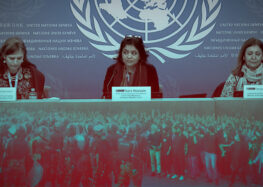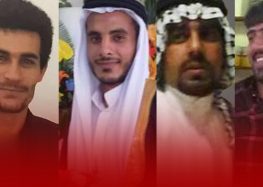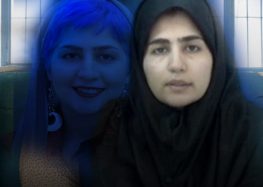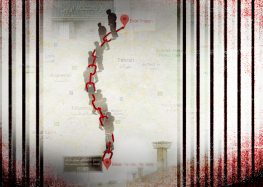Former Tehran Prosecutor Acquitted of Charges in Kahrizak Murders despite Overwhelming Evidence

Saeed Mortazavi, The former Tehran Prosecutor
Mortazavi Verdict Shows Officials Still Enjoy Impunity even in Cases of Torture and Death of Prisoners.
The former Tehran Prosecutor, Saeed Mortazavi, was acquitted on August 19, 2015, on charges connected to the torture and deaths of three young men at the Kahrizak detention center in 2009, but the relatives of the victims insist the fight is not yet over.
After the peaceful protests that followed the disputed 2009 presidential election in Iran, dozens of protesters were rounded up by security forces and taken to the Kahrizak detention center in the south of Tehran. According to eyewitnesses, many were tortured. Three died as a result of their torture. Mortazavi was deeply implicated in the transfer of the protestors to Kahrizak, and then falsified the cause of their death in order to cover up evidence of torture and murder at the facility.

Mohammad Kamrani
Ali Kamrani, whose son Mohammad was one of the three young men who died at Kahrizak in 2009, told the International Campaign for Human Rights in Iran that his lawyer will appeal if necessary when he receives the official judgement in favor of Mortazavi.
Mohammad Reza Mohammadi Kashkouli, the judge presiding over Mortazavi’s trial, was quoted by the Tasnim News Agency on August 19, 2015, to say that the former Tehran Prosecutor had been exonerated of two charges of accessory to murder and one charge of falsifying a report on the incidents at Kahrizak.
Mortazavi told reporters he had heard the judge had acquitted him of two charges in connection with Kahrizak, but he had not yet seen the actual ruling.
“I never thought that with all the evidence against him, Saeed Mortazavi would be acquitted,” Massoud Alizadeh, one of the tortured Kahrizak detainees told the Campaign. Alizadeh, who left Iran and settled in Germany after receiving threats to his life, continued, “Mortazavi was the one who sent us to the detention center and then wrote a false report that the detainees had died of meningitis….This is a great tragedy. One should feel sorry for a judicial system that lets a murderous criminal go.”
“Do you think justice has been done? My child is no more,” Ali Kamrani said to the Campaign about Mortazavi’s reported acquittal. “We have not been informed of the decision regarding Saeed Mortazavi’s case…We will object if necessary.”
Mir Majid Taheri, the lawyer for the family of Mohsen Rouholamini, another murder victim at Kahrizak, also told the Iranian Labor News Agency (ILNA), “This decision is not yet final. We will definitely deliver our objection to this decision in writing within the legal time limit.”

Massoud Alizadeh
Massoud Alizadeh told the Campaign that the psychological wounds left by events at Kahrizak had still not healed after six years. “I really expected Mr. Mortazavi’s trial would be fair… Saeed Mortazavi is responsible for all those who were killed and injured there.”
Alizadeh, who was arrested on July 9, 2009, and transferred to Kahrizak, said he was taken there on Mortazavi’s orders. “Kahrizak was not under the [Judiciary’s] prison system; it was an illegal detention center,” he told the Campaign.
“It feels really bad seeing someone walking free when you know he’s a criminal,” Alizadeh added.
Alizadeh’s defense attorney was the prominent human rights defender Abdolfattah Soltani, but Soltani himself has been imprisoned on sham national security charges since 2011. “I sued Mortazavi, but I can’t reach him because my lawyer is in prison.”
Alizadeh noted that in addition to the three murdered victims at Kahrizak (Amir Javadifar, Mohammad Kamrani, and Mohsen Rouholamini) he and other victims of physical and psychological torture at the detention center should also be acknowledged and remembered.
“We were all tortured close to death. Some died and we lived but no one saw us. The judicial authorities did not investigate our case. I wish those who had a voice could also mention what happened to us as well,” he said.
The plight of the detainees was first brought up by Mehdi Karroubi, one of the 2009 presidential candidates who has now entered his fifth year under house arrest. But the scandal, despite the media outcry, was kept under wraps and journalists who tried to investigate and report on the deaths were arrested and sentenced to long prison sentences.
Only due to the persistence of the families of the three murdered detainees was the case finally taken to court after three years in March 2011, but the verdicts issued have been shockingly lenient. In July 2013, Saeed Mortazavi, the prime suspect in the case, was acquitted of the charge of “participation in murder,” dismissed from government employment for five years, and sentenced to approximately $60 in fines for “false reporting.”






